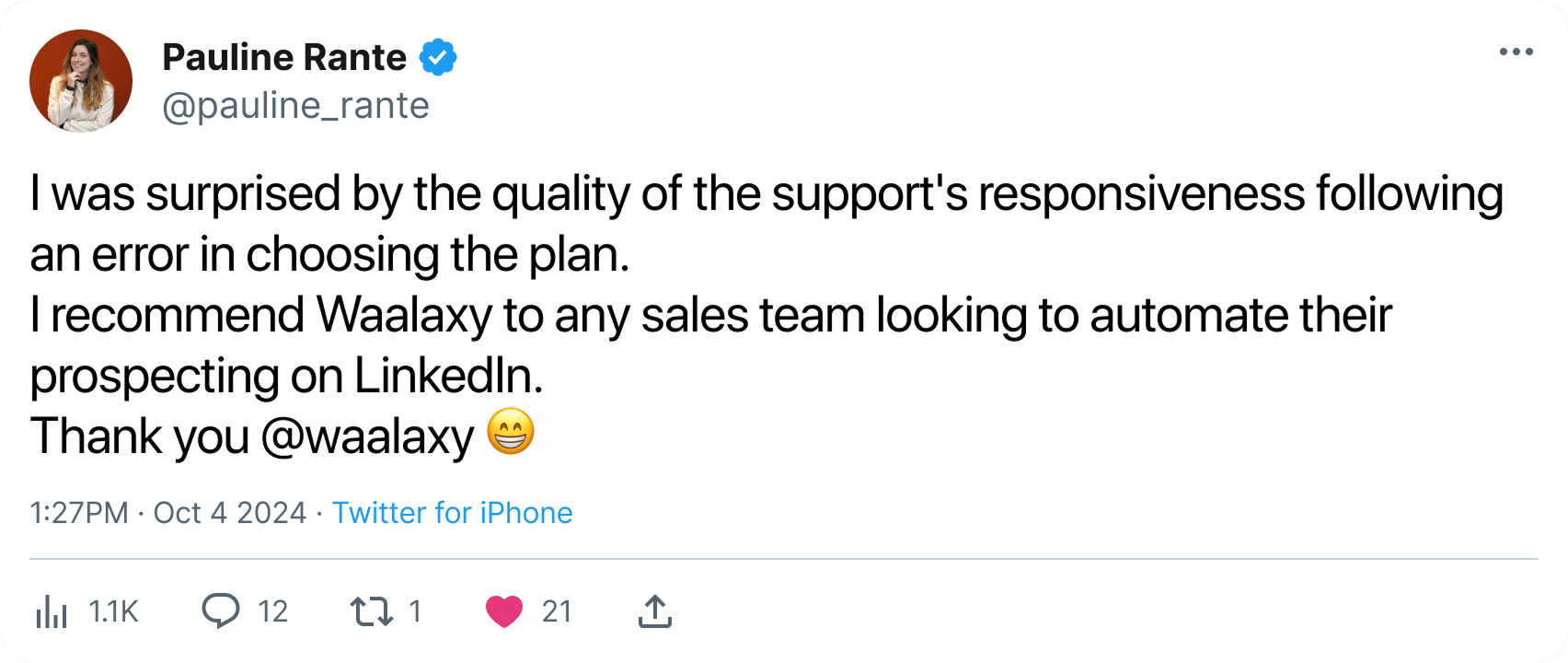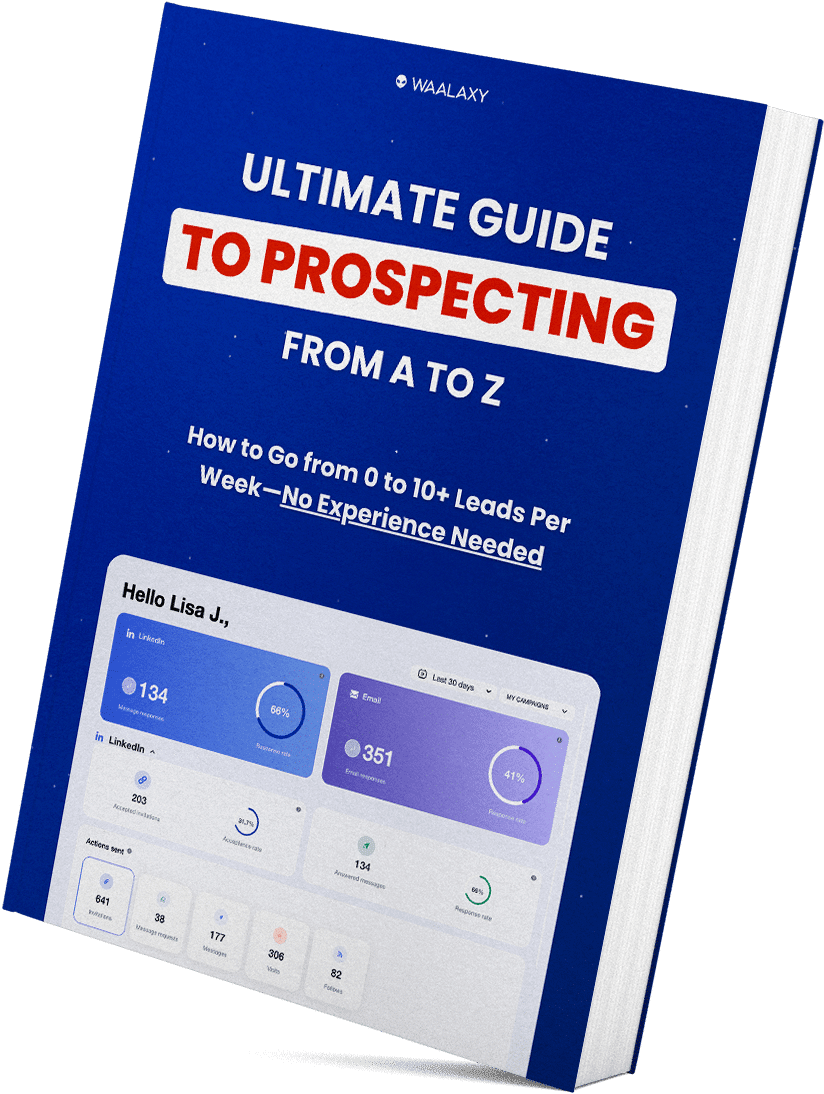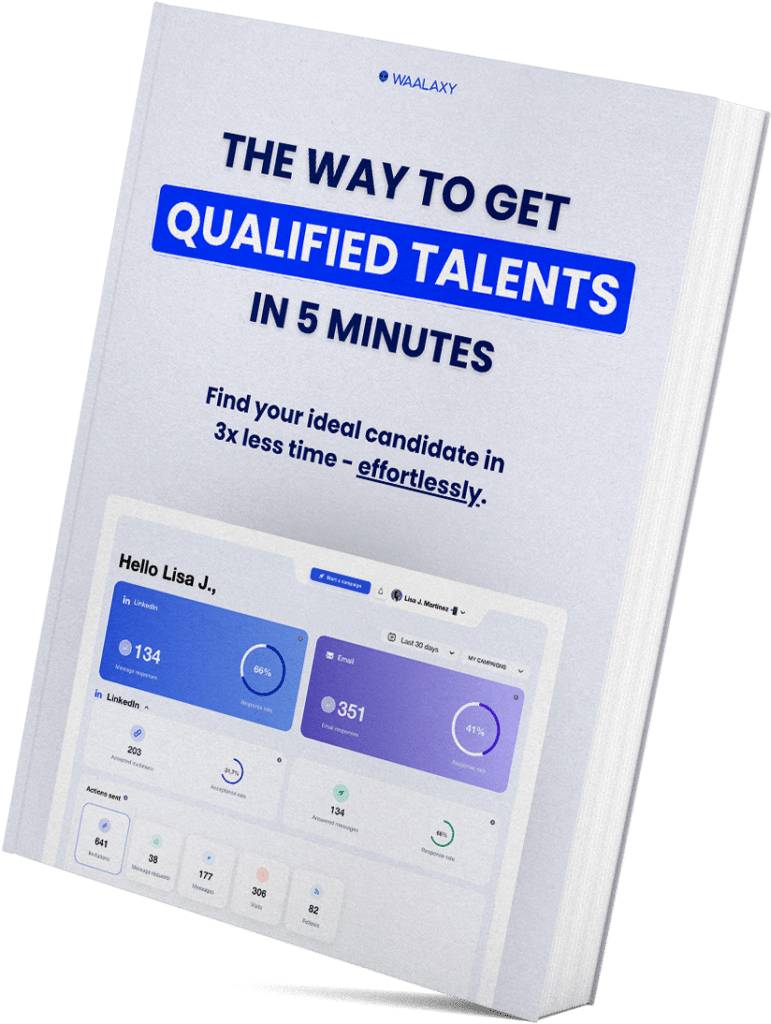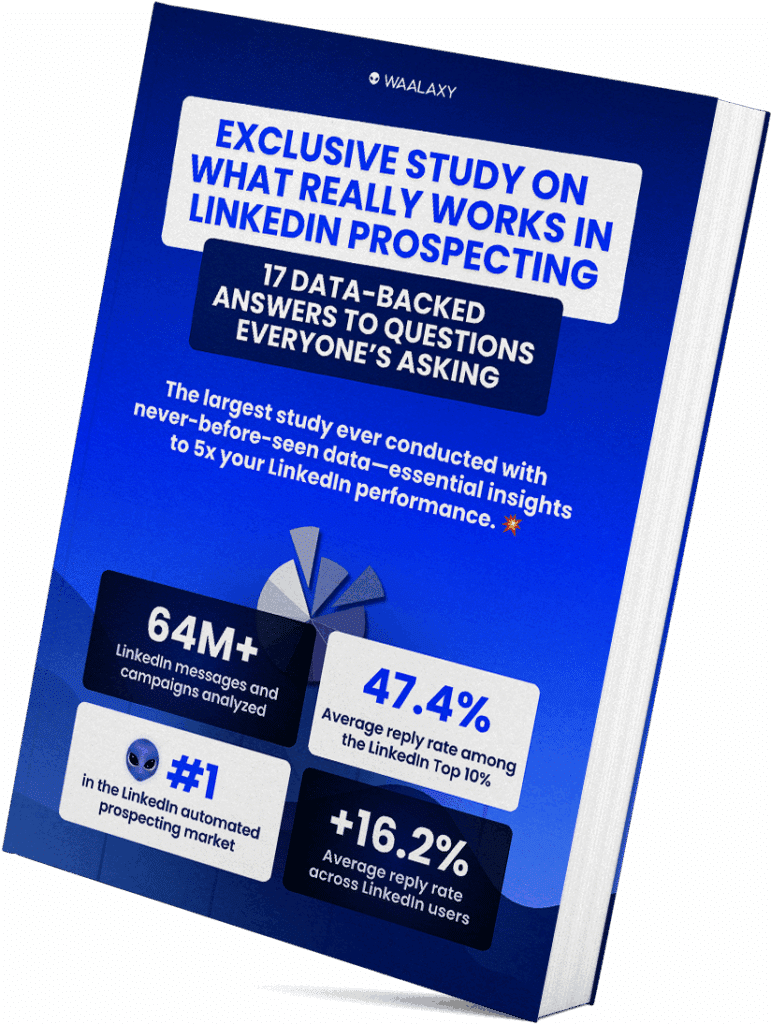You’ve vaguely heard of lead scoring? You know what it is but you don’t know how to implement it? We explain it all here!
What is Lead Scoring?
Lead scoring is a technique used to evaluate the quality of prospects in sales prospecting.
It allows you to rank prospects based on their maturity level and relevance as targets for the company. 🎯 CRM tools are often used to set up an automated lead scoring system, which helps track and optimize prospecting performance.
Inbound marketing is a term that describes marketing and sales strategy focused on attracting new customers rather than actively prospecting.
This includes implementing marketing automation actions to retain prospects and convert them into customers. Lead scoring is particularly useful for B2B companies, which seek to identify the most qualified prospects for their offer.
Here is an example of lead scoring:
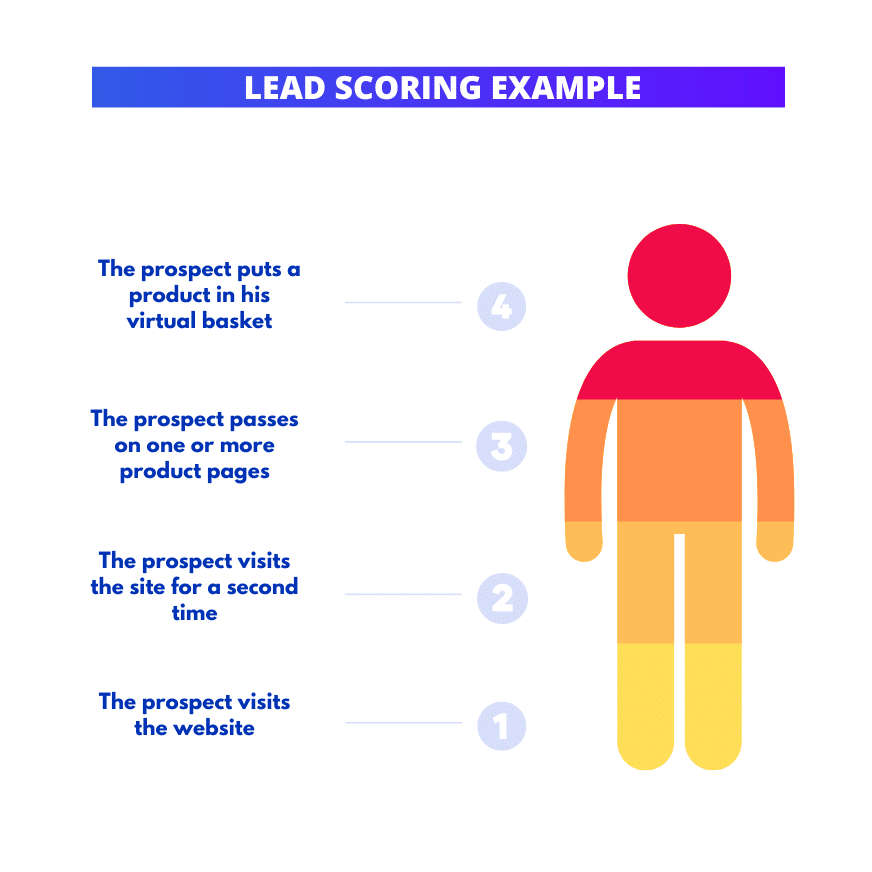
Key Steps of Lead Scoring
There are several key steps to setting up effective lead scoring: defining the objectives, identifying the appropriate scoring criteria, assigning points through automation, monitoring and analyzing the results, and creating the marketing strategy to build a strong lead-generation process.
Let’s go through these steps one by one! 😉
Define the Objectives
Defining the objectives is essential before you start evaluating the prospects. It is important to clearly define the purpose of scoring.
That is, what you want to achieve.
Here are some examples of goals:
- ⭐ Improving lead quality, (many people visit your site but few buy your products).
- 💰 The increase in conversions,
- 📉 The reduction of prospecting costs.
Identify the Rating Criteria
The second step is to identify the scoring criteria once the objectives have been defined. It is necessary to determine the criteria that will be used to evaluate the prospects.
If you need more concrete cases, here are some lead-scoring ideas:
🥇 Direct Prospecting:
- Goal: Identify the most qualified prospects for a sale.
- Scoring criteria: Annual revenue, company size, industry…
🥈 Brand Development:
- Goal: Identify prospects most likely to become brand ambassadors.
- Scoring criteria: Social media engagement, frequency of content sharing, number of followers…
🥉 Customer journey improvement:
- Goal: Identify customers most likely to require technical training.
- Scoring Criteria: Number of help requests, number of a contact in chat, technical support history, technical skill level…
Scoring
Point allocation: after identifying the scoring criteria, it is necessary to determine how many points each criterion is worth. ⭐ This will allow you to rank the prospects according to their relevance to the company. For this step, you will use the scoring criteria you have chosen and decide what is important and what is less important.
💡 This is exactly like reviewing a resume! You can identify several scoring criteria as “equally important” and others as more important because they make the prospect’s actions more engaging.
Here if we go back to our illustrated example, the goal is to get more sales performances on the website:
| The prospect visits the site via a classic search | ⭐ |
| The prospect visits a product page | ⭐⭐⭐ |
| Prospect returns to the site a second time | ⭐⭐ |
| Prospect puts an item in their shopping cart | ⭐⭐⭐⭐ |
| Prospect attempts to make a purchase but stops at the last step | ⭐⭐⭐⭐ |
| Prospect clicks on a paid ad to the site | ⭐ |
Once you’ve figured out the importance of each scoring criterion and you’ve made your scorecard, we’ll move on to setting up automation.
Tips on Assigning Points
The Degree of Maturity of the Project
Analyze the maturity level, especially in the case of big sales (real estate, construction…) This can include information such as the date the project was launched, the budget allocated, the level of the decision maker, the stage of purchase the project is in, etc. 💡
The more mature the project is, the more it will be considered “ready to buy”.
The Prospect’s Interests and Needs
The prospect’s interests and needs can be determined from information obtained from interactions with the prospect, such as pages visited on the company’s website, products or services viewed, content downloads, etc. 💡 The more interest the prospect shows in the company’s products or services, the more relevant he or she will be considered and thus increase the score.
Demographics
Demographics such as age, gender, occupation, industry, etc. can help determine a prospect’s relevance to the company. 💡 For example, if the company is primarily targeting mid-sized businesses, prospects in that category will be awarded points.
Interactions with the Company
Interactions with the company can include information such as emails opened, forms filled out, phone calls, meetings, etc. 💡 The more a prospect interacts with the company, the more relevant they will be considered and therefore awarded high points.
Social Data
Social data such as newsletter subscriptions, followers on social networks, comments, and mentions can help determine a prospect’s relevance to the company. 💡 The more active a prospect is on social networks and shows interest in the company, the more invested they will be considered and therefore rated highly.
Setting up an Automation
Setting up automation with a marketing automation software: once the scoring criteria and points have been defined, it is important to set up automation to collect and analyze data about the prospects.
This can be done using CRM software or a marketing automation platform. Here are some examples of CRMs. 👇
- Hubspot CRM.
- Zoho CRM.
- Sales Forces.
- Waalaxy CRM.
Each CRM works differently and allows for personalized lead scoring, you just have to find what suits you. Lead scoring can also be done by hand but I don’t really advise you to use this type of time-consuming method.
Here is an example of lead scoring at Salesforce, each validated step leads the prospect to the next step. 👇
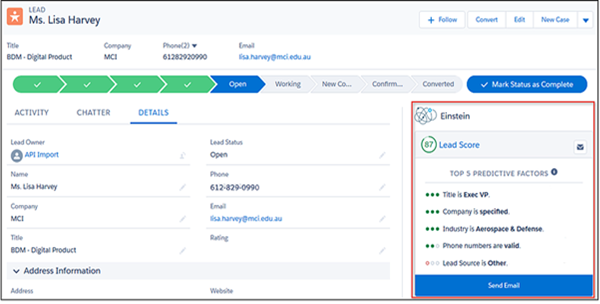
In these sequences, each step automatically creates an action.
For example, if the prospect visits a product page on your site, she can receive an email of this type. 👇
If we take another example, you can also advance to the stage where the prospect has filled out a quote request with appointment scheduling, and the phone appointment is automatically added to the schedule of the salesperson in question.
You can imagine hundreds of different automation depending on your goals, criteria, and tools. 😜
Tracking and Analysis of Results
💹 In order to check if lead scoring is effective, it is important to track and analyze the results obtained. This can include indicators such as:
- The lead conversion rate
- The cost per lead
- Customer retention rate.
Depending on the results, it is possible to adjust the scoring criteria or points to further improve the lead scoring. Lead scoring will also allow you to identify at which stage of the sales process you are losing the most sales. Do your leads all get through step 4 but never get to step 5? ⭐
If this is the case, then there is a blocking element identified and to be changed between these two processes until all buying steps are done seamlessly.
Implementation of a Nurturing Strategy
Once qualified leads have been identified, it is important to implement a nurturing strategy to convert them into customers. This can include marketing automation actions to maintain regular contact with leads and encourage them to become customers.
I’m not going to elaborate more on this part because nurturing is another subject that you can discover here. 👇
The Guide to Lead Nurturing 🔥
Yves Rocher’s Lead Scoring Example

Yves Rocher, a French cosmetics company, decided to implement a lead scoring system to improve the quality of their leads and increase conversions. Here’s an example of what I would have done if I were at Yves Rocher and working on lead scoring. 😜
Business Strategy
(this is an “illustrative” case study and doesn’t exactly match the company’s lead qualification strategy).
In summary, the lead scoring system to be implemented for Yves Rocher allows us to classify prospects according to their relevance to the company, which has led to an improvement in lead quality, an increase in the conversion rate, and a reduction in prospecting costs.
How Can you do Lead Scoring with a Landing Page, a Website or an Email Campaign?
To better illustrate my point, I will use the example of Amazon. Amazon uses lead scoring to optimize email campaigns and increase conversions.
🤓 The company uses this data:
- Customer interests and needs.
- Demographics and segments.
- Online behaviors.
- Subscription type (premium, freemium).
Using these scoring criteria, Amazon was able to evaluate prospects based on their relevance to email campaigns and was able to target the most qualified prospects to increase conversions.
Amazon suggests items based on what you’ve already purchased or what is usually sold together…
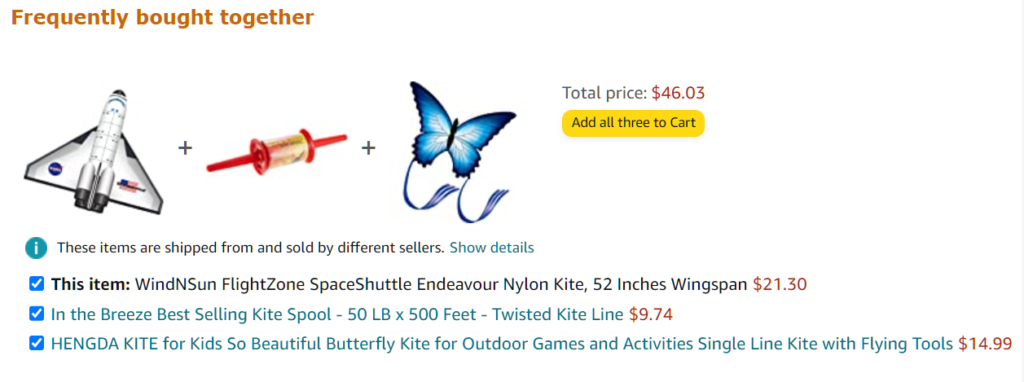
The company also asks you questions to better segment its offers,
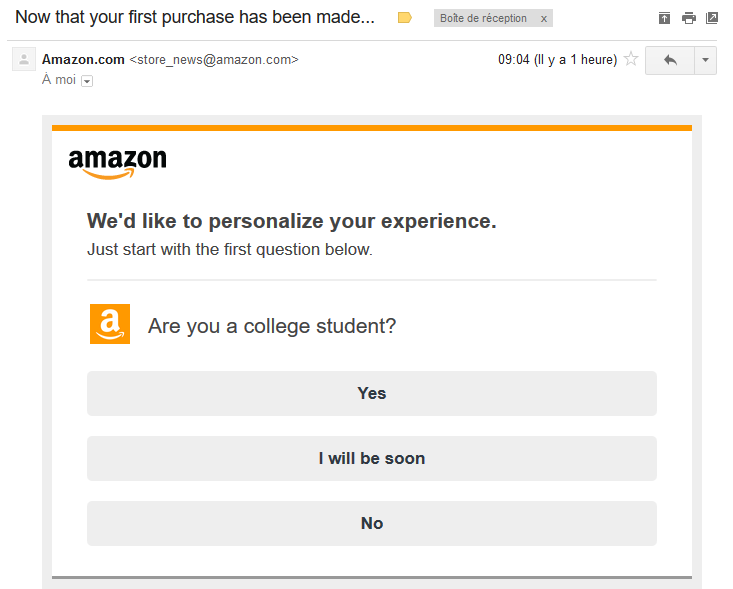
And makes offers according to your types of subscriptions.
All customer data is collected on the site to improve the user experience and help him find the best items according to his tastes and thus facilitating the transition to the purchase, these data are collected through cookies from your site. We tell you more about cookies in this “relationship marketing” article. 🤝
How to do Lead Scoring on LinkedIn?
There is a method to do lead scoring on LinkedIn, it is done in several steps:
Use LinkedIn Profile Data
LinkedIn profile data, such as location, industry, and professional interests, can be used to segment prospects and rank them according to their relevance to the company. Find out how to segment profiles. 👀
(Optional) Use the Lead Management Tools Offered by LinkedIn
Sales Navigator, tracks interactions with prospects and ranks them based on their maturity and relevance to the business.
Use Third-party Tools such as Waalaxy
There are also third-party tools that can be used to collect and analyze lead data on LinkedIn, such as CRM tools, marketing automation tools, etc. These tools can be integrated with LinkedIn to track interactions and rank prospects based on scoring criteria.
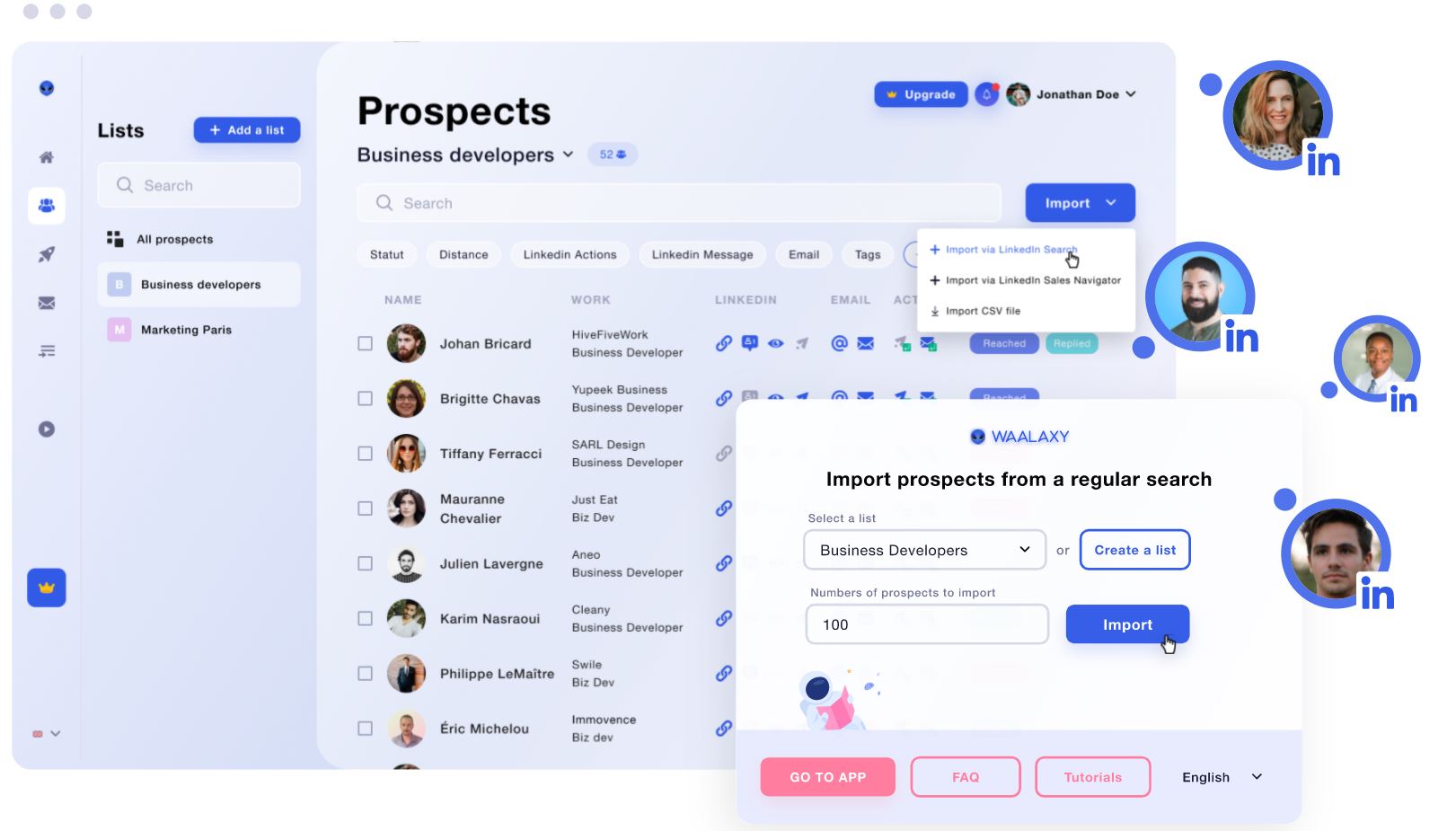
Use Interaction Data
Interactions on LinkedIn, such as posts, comments, shares, mentions, clicks, can be used to gauge prospects’ interest in the company. Prospects who showed active interest in the company’s posts were awarded high points.
You can also use Waalaxy to automate reaching out to people who comment on your posts. 😜
Using these different methods, it is possible to do lead scoring on LinkedIn and target the most qualified prospects for the company.
FAQs on Lead Scoring
Recap: What is Lead Scoring?
In a nutshell, lead scoring is a technique used to evaluate the quality of prospects for sales prospecting. It is used to classify prospects according to their degree of maturity and their relevance as potential customers for the company.
Lead management tools are often used to set up an automated lead scoring system, which allows monitoring and optimizing the performance of digital prospecting. 👨
How can Lead Scoring Help B2B Companies?
Lead scoring is particularly useful for B2B companies, who are looking to identify the most qualified prospects for their offer. It allows sales teams to target the most relevant prospects and qualify them more quickly in the sales cycle. This saves time and maximizes the chances of conversion to customers. 😉
How are Automated Marketing Tools used in Lead Scoring?
Automated marketing tools are used to collect and analyze lead data, as well as to implement lead nurturing and segmentation actions. For example, marketers can use automated scenarios to send targeted follow-up emails to hot prospects or to set up retargeting campaigns on social networks. 📳
Automated marketing tools also allow you to personalize marketing actions based on the maturation of prospects in the buying journey. 💰
How can Lead Scoring to Improve Customer Relationships?
Lead scoring allows companies to better understand the needs and interests of prospects, which allows them to target them more accurately and offer them personalized content and offers, like in our example or Amazon offers personalized items.
It helps improve customer relationship by increasing trust and loyalty. 🤗
How to Set up a Lead Scoring System?
To set up a lead scoring system, it is necessary to define the objectives, identify the scoring criteria, assign points, set up automation and track and analyze the results. It is also important to implement lead nurturing and segmentation strategies to maximize the chances of conversion into customers.
How to Maximize the Number of Qualified Leads?
To maximize the number of qualified leads, it is important to implement a comprehensive digital marketing strategy:
- Target the right prospects,
- Create personalized campaigns through automation,
- Verify results and perform A/B testing,
- Follow up on leads to retaining new customers.
And there you have it, you know how to achieve high-quality lead scoring!




